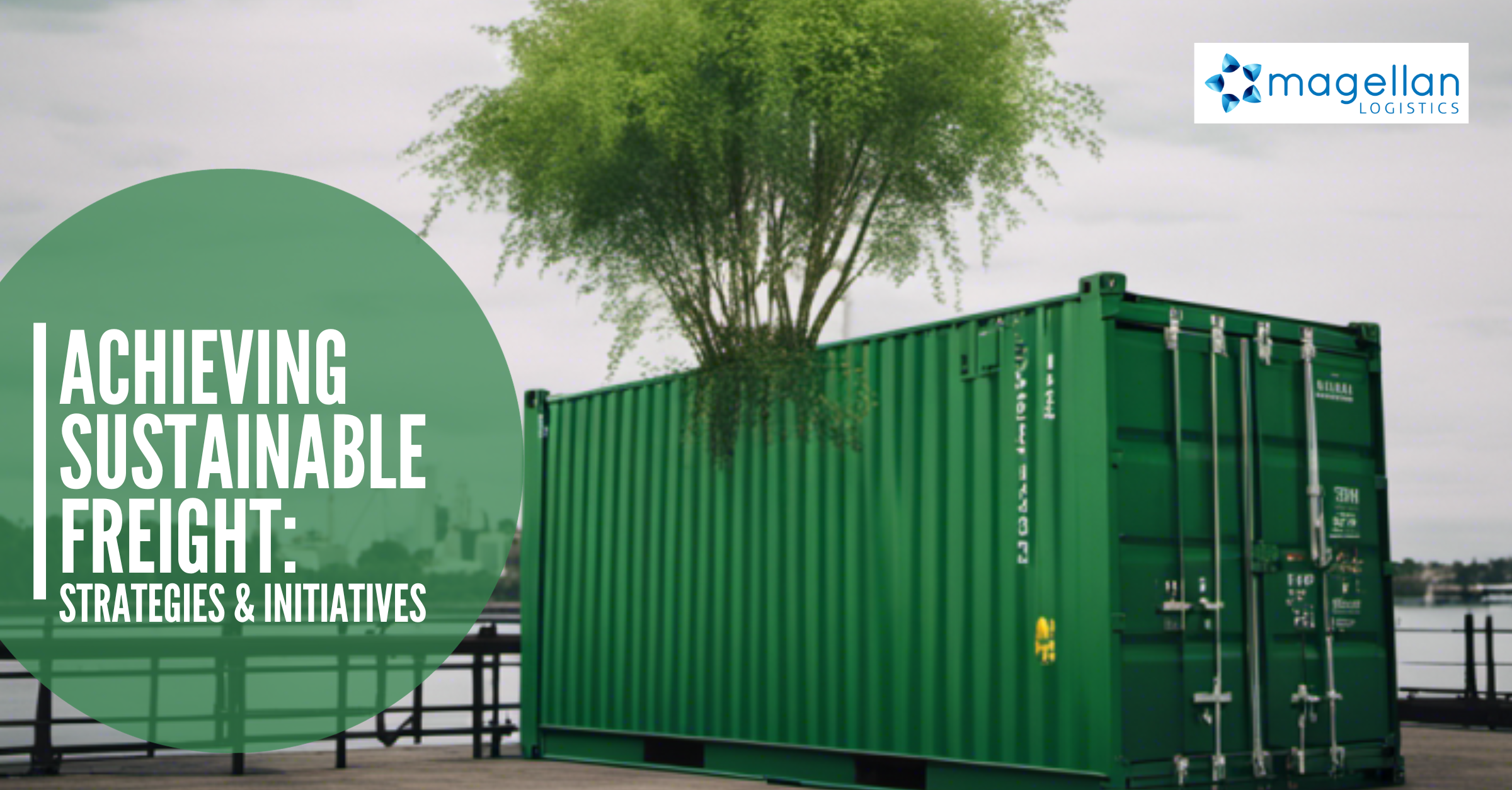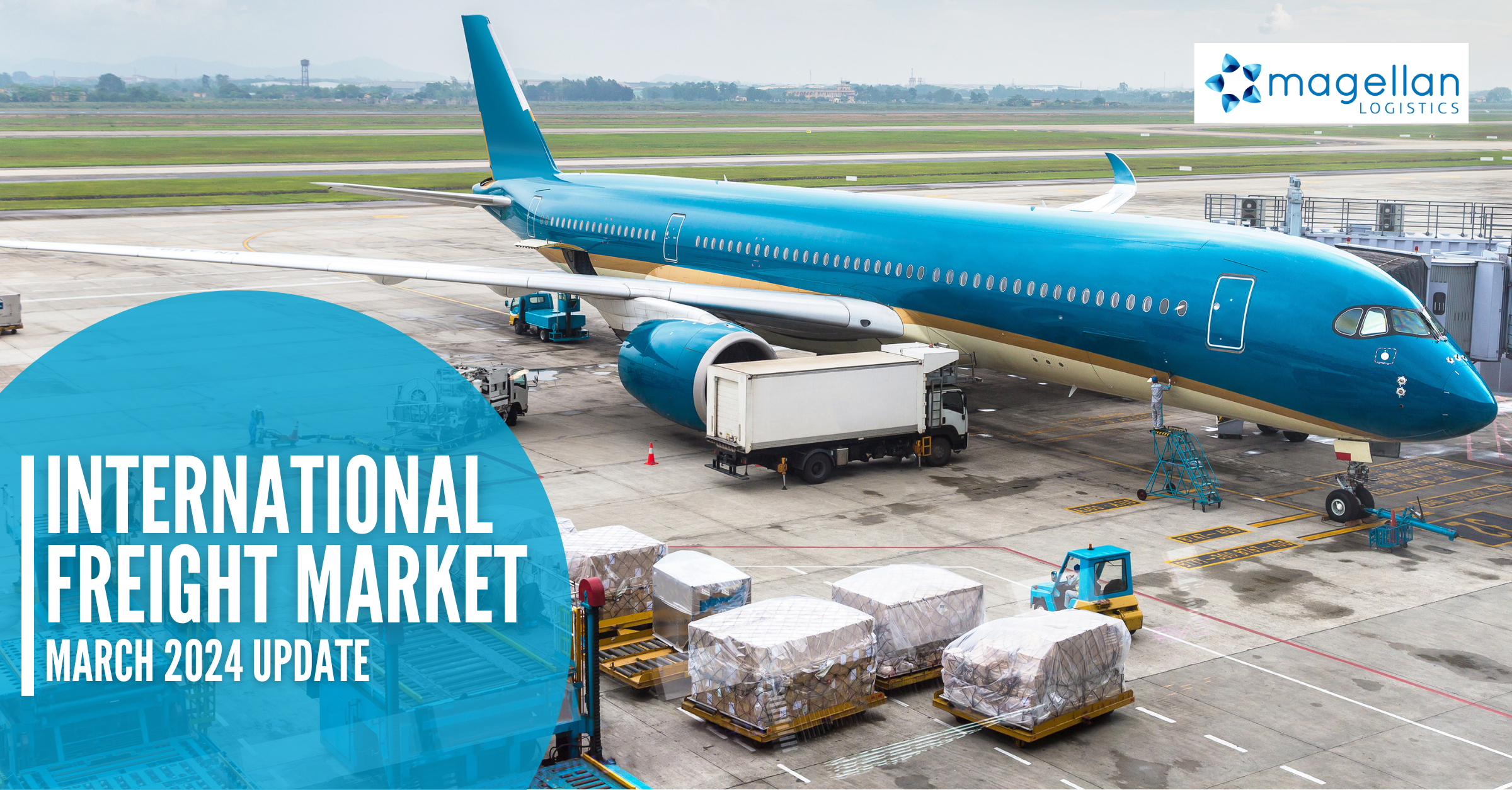Freight carbon emissions account for about 8% of the world’s greenhouse gas emissions and over 10% if warehouses and ports are included. Given its vital role in society, the industry shows no signs of slowing down. However, recent years have witnessed a growing awareness of the environmental impact of international transportation, sparking a collective effort to address the issue with sustainable freight initiatives.
Individual Efforts Towards Sustainable Freight
Shippers and the industry as a whole have various avenues to reduce emissions within the transportation sector:
Green Shipping
Green shipping involves optimising vessels to minimise emissions. In 2023, the logistics industry can adopt several measures:
- Electric and hybrid vehicles, biofuels, and LNG-powered ships.
- Slow Steaming – reducing vessel speeds, which studies show can cut emissions by 19%.
- Reducing empty containers and optimising container use can eliminate the need for one-third of container ships.
- Optimising shipping routes to reduce the total distance travelled.
Sustainable Packaging
Packaging is a significant contributor to the environmental impact of freight forwarding operations.
- The logistics industry has witnessed advancements in sustainable packaging solutions, including recycled materials, biodegradable and compostable options, and reusable containers.
- Right-sizing and minimising the use of packaging material can further reduce waste and environmental impact.
Lean Logistics
Lean logistics principles involve identifying and eliminating waste in the supply chain. Adopting lean logistics principles, including reducing overproduction, minimising inventory, optimising routes and enhancing supply chain visibility, can minimise environmental impacts.
Sustainable Partnerships
Sustainable partnerships are an essential step towards reducing the environmental impact of the freight forwarding industry. Collaborating with sustainable suppliers and customers, implementing environmental criteria for supplier selection, and working together to reduce carbon emissions across the supply chain are critical steps.
Carbon Offsetting
Carbon offsetting is a practice that involves compensating for greenhouse gas emissions produced by human activities by investing in projects or activities that reduce or remove an equivalent amount of carbon dioxide (CO2) or other greenhouse gases from the atmosphere. These projects can include reforestation efforts, renewable energy projects, or initiatives that capture and store carbon emissions. The idea is to balance out the emissions generated in one area by reducing emissions or increasing carbon sequestration in another, ultimately helping to mitigate climate change and achieve a net-zero carbon footprint. Shippers and forwarders can offset the carbon emissions associated with their freight.
Industry-Wide Sustainability Initiatives and Calls to Action
In addition to individual efforts, several industry-wide sustainability initiatives exist for businesses sending freight across borders.
Green Freight Europe
Green Freight Europe is an industry-wide program that aims to reduce carbon emissions from freight transportation by promoting sustainable logistics practices. The program provides tools and resources to help importers and exporters measure and reduce carbon emissions.
Green Freight Europe also promotes using low-carbon fuels and vehicles and improves transport operations’ efficiency through better route planning, load optimisation, and eco-driving techniques. By participating in the Green Freight Europe program, freight forwarders can work towards reducing their carbon emissions and improving their sustainability.
Smart Freight Centre
The Smart Freight Centre is an international non-profit organisation that works with businesses to reduce carbon emissions and improve sustainability. The organisation offers a range of tools and resources to help companies measure and reduce their carbon emissions, including the GLEC Framework for Logistics Emissions Methodologies.
The GLEC Framework is a standardised methodology for measuring and reporting logistics emissions. Using the GLEC Framework, shippers can accurately measure their carbon emissions and identify areas where they can reduce their environmental impact. The Smart Freight Centre also offers training and support to help businesses implement sustainable logistics practices.
United Nations Sustainable Development Goals (SDGs)
The United Nations Sustainable Development Goals (SDGs) provide a framework for global sustainability efforts. The SDGs cover a range of environmental, social, and economic issues, including climate action, responsible consumption and production, and partnerships for the goals.
Shippers can contribute to global sustainability efforts and demonstrate their commitment to creating a more sustainable world by aligning their sustainability efforts with the SDGs. The SDGs provide a roadmap for businesses, with specific targets and indicators to measure progress toward sustainability goals.
Green Supply Chain Management
- Beyond internal efforts, businesses can extend their sustainability focus to their supply chains.
- Implementing green supply chain management practices involves working closely with suppliers to ensure they adhere to sustainable practices.
- Forwarders can conduct supplier audits and certifications to verify sustainability efforts.
Technology and Data Analytics
- The adoption of advanced technology and data analytics can significantly enhance sustainability efforts.
- Predictive analytics can optimise routes, reducing fuel consumption and emissions.
- IoT sensors can provide real-time visibility into cargo conditions, minimising waste and damage.
- Businesses throughout a supply chain can invest in technology solutions that align with sustainability goals.
Employee Engagement
- Employees play a crucial role in a company’s sustainability journey.
- Forwarders can engage employees by creating sustainability awareness programs, offering training, and involving them in sustainability initiatives.
- A motivated workforce can drive sustainability improvements from within.
The Future of Sustainable Freight
The future of sustainability in the freight industry looks promising, with increasing awareness of the environmental impact of operations and a growing commitment to sustainability. In the future, businesses can expect to see continued efforts to improve sustainability, driven by a combination of regulatory requirements, customer demand, and industry initiatives.
Regulatory requirements will significantly drive sustainability efforts, with governments worldwide implementing policies to reduce carbon emissions and promote sustainable practices. For example, the European Union’s Green Deal initiative includes targets to reduce carbon emissions from transport and promote sustainable logistics practices. Businesses should stay informed about evolving regulations and adapt their operations accordingly. Compliance with regulations reduces legal risks and contributes to a more sustainable reputation.
Customer and end-consumer demand will continue to drive sustainability efforts, with businesses and consumers increasingly seeking sustainable products and services. Brands that demonstrate their commitment to sustainability will likely have a competitive advantage in the marketplace.
Finally, industry initiatives and collaborations will be essential in driving sustainability efforts, with organisations like Green Freight Europe and the Smart Freight Centre providing tools and resources to help businesses improve their sustainability. As more organisations participate in these initiatives, the industry as a whole will become more sustainable.
The international freight industry is becoming more aware of its environmental impact and taking active steps to become more sustainable. Shippers can improve their sustainability through individual efforts, such as green transportation, sustainable packaging, carbon offsetting, lean logistics, and sustainable partnerships. There are also industry-wide sustainability initiatives and calls to action that organisations can participate in to reduce their environmental impact. With regulatory requirements, customer demand, and industry initiatives driving sustainability efforts, the industry can look forward to a greener and more sustainable future for the transportation industry.
Are you working on a carbon reduction strategy? Magellan offers our clients a robust and simple way to measure and offset their carbon emissions from freight. Get in touch with one of our freight specialists on 1300 651 888.













